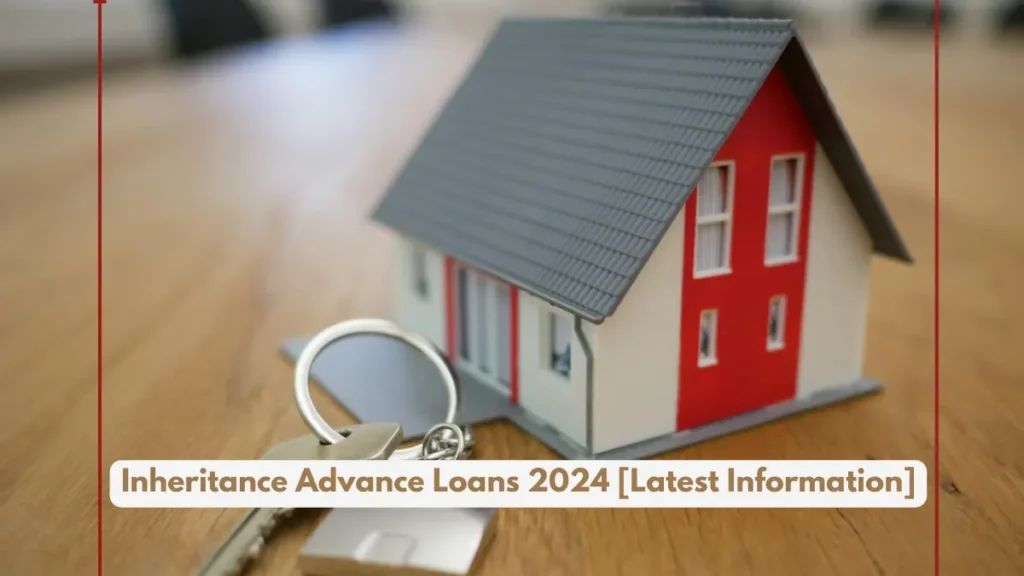An inheritance advance loans, also known as a probate advance or probate cash advance, provides a way for heirs to access funds from an expected inheritance before the probate process concludes. If you’re waiting for an estate settlement but need cash now, an inheritance advance might be a viable solution. In this article, we’ll explore how inheritance advances work, their benefits, drawbacks, and considerations for heirs in the USA.
How Does an Inheritance Advance Loans Work?

- Definition and Purpose:
- An inheritance advance is not a traditional loan. Instead, it allows you to receive a lump sum upfront by allowing an advance company to purchase part of your expected inheritance.
- You agree to let the advance company claim a portion of the assets you’re set to inherit. Once probate ends, the estate pays the agreed-upon amount to the company, and any remaining assets are forwarded to you.
- Example Scenario:
- Imagine your parents leave you a $100,000 inheritance in their will. After probate fees and expenses, you expect to inherit $90,000.
- However, you urgently need $25,000 for your child’s college tuition. You work with an inheritance advance company that agrees to purchase 30% of your inheritance (i.e., $27,000).
- The company provides you with the $25,000 you need immediately. After probate concludes, they collect the $27,000 they purchased, along with their fee, and the remaining inheritance is paid out to you.
Benefits of Inheritance Advances
- Speed and Convenience:
- Unlike traditional loans, inheritance advances can be approved and funded within 24 hours.
- No lengthy credit checks are required, making them accessible even for borrowers with poor credit.
- Flexible Use of Funds:
- You can use the advance for various expenses, such as education, medical bills, or home repairs.
- No collateral is needed, and you don’t make direct payments—the advance company collects from the estate.
Drawbacks of Inheritance Advances
- Costs and Fees:
- While there’s no interest, the advance company charges a flat fee.
- Be aware of the total cost before proceeding.
- Reduced Inheritance:
- By selling a portion of your inheritance, you’ll receive less overall.
- Consider whether the immediate cash outweighs the reduction in the final inheritance amount.
Conclusion
Inheritance advances provide a lifeline for heirs facing financial needs during probate. Before opting for one, consult with a financial advisor to weigh the pros and cons based on your unique situation. Remember that while an inheritance advance can offer quick relief, it’s essential to make an informed decision.
Remember, always seek professional advice when dealing with financial matters. If you have specific questions or need further assistance, consult a financial advisor or legal expert
What are the eligibility criteria for inheritance advances?
Eligibility criteria for inheritance advances can vary depending on the lender or advance company. However, here are some common requirements:
- Minimum Inheritance Amount:
- Documentation:
- You’ll need to provide certain documents, including:
- Copy of the death certificate
- Copy of the will (if available)
- Probate petition and letters of administration
- Valid ID
- You’ll need to provide certain documents, including:
Remember to notify the estate’s administrator or executor if you’re considering an inheritance advance. Consulting with a financial advisor can also help you make an informed decision based on your unique situation.
What are the typical fees associated with inheritance advances?
The cost of an inheritance advance can vary based on the company you choose. Typically, these fees range from 10% to 50% of the total inheritance amount.
For example, if you’re set to inherit $100,000, an advance company might offer you $30,000 upfront (30% of the inheritance) and charge a fee based on that amount. Keep in mind that this fee is deducted directly from the inheritance itself, not from your personal funds.
If you’re considering an inheritance advance, consulting with a financial advisor can help you make an informed decision based on your specific needs and circumstances
